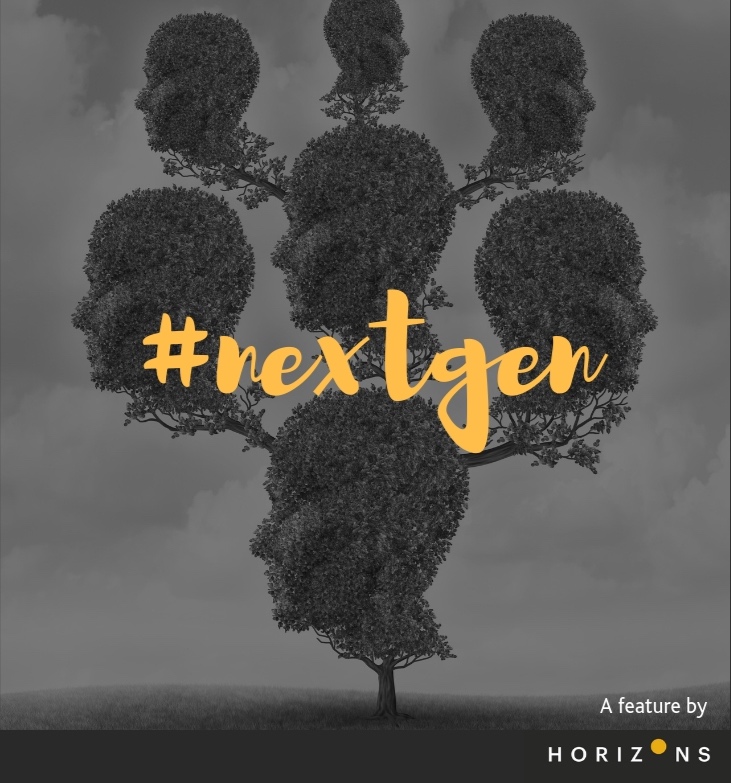Welcome to the first feature in the Horizons series, ‘Trailblazing Next Gens’.
Welcome to the first article of Horizon’s new series ‘Trailblazing Next Gens’, in which they will be exhibiting Next Gens who are leading the way in their chosen fields. Their first interview is with Manfred Mautner Markhof, an eco-entrepreneur who proved the compatibility of sustainability and financial success in the field of agriculture through his Aquaponics business.
What was your business?
I launched BLÜN, an Aquaponics business, in Vienna in September 2017. It took 3 years of intense research before I could truly enter the industry. In the end I sold the company for a 200% return on investment less than a year later.
What exactly is Aquaponics?
“Aquaponics” combines the use of on-land fish farming (i.e. “aquaculture farming”) and a soil-less crop farming technique, more commonly known as “hydroponics”. In this way, the fish and crops enjoy a symbiotic relationship. Solid fish manure can be converted into a liquid nitrogen base, which is absorbed by the plant roots as nourishment e.g. within PVC tubes, or “deep water culture” medium beds. As the roots absorb the nutrients, the circulating water is purified and sent back into the aquaculture. In essence, water is circulated throughout the assembly site, allowing fish and vegetables to be grown harmoniously. And no – the vegetables don’t taste like fish – as the manure is broken down to its molecular level and artificially creates a nitrification process, which is also found in fertilised soil.
Looking for answers
Thereafter it gets quite complex. I guess that’s where my passion kicked in. By 2015, the urban farming concept was known to a handful of AgriTech specialists, hobbyists and/or PE/VC investors.
I saw in the sheer simplicity of the circulatory Aquaponics system a true beauty. The alarming truths behind contemporary agricultural malpractices truly arrested my desire to change things – particularly in Austria.
So, I decided to take things a little further and deepen my understanding by learning from “the father of Aquaponics” himself, Dr. James Rakocy. At the UVI, I was able to grasp the totality of the issue; if I wanted to “change” the way food is produced significantly, I would first have to prove its business viability.
In comparison to any conventional farm, the closed-loop Aquaponic cycle uses 90% less water, 60% less energy and can produce results 10x faster – without the use of fertilisers, anti-biotics, pesticides/fungicides or any other added chemicals. Although Aquaponics is traced back to the ancient Egyptian, Mayan and/or South East Asian agricultural rice-paddy fields – in which small swamp-like islands would soak up nutrients from the water, and were subsequently used as floating farm islands – Rakocy was the first to prove its economic viability in the mid-60s. Until now, no active or viable business model has survived.
Taking action
It wasn’t long after that I studied and dismantled rival European players and existing business models. I met with leading figures in both the European and the Austrian Aquaponics scene. I quickly got a holistic market and industry understanding, and decided to act swiftly. In the end, I took the means that had presented themselves and decided to approach an existing hydroponic farmer and presented him with a unique “proof of concept” approach.
The outcome of two years of hard work was Europe’s largest Aquaponics Farm, with the production potential of 2000tonnes/year of vegetables and 150t/year of fish. (In comparison – the entire nation of Austria produces roughly 3000t/y of fish). In the end, I was able to present the first large scale Aquaponics system in Europe.
In short – I was shocked by the truths about the industry, and what little effort was made to change misconduct. The more I investigated, the more I understood – the more I learned, the more passionate I became about proving that Aquaponics can work conventionally.
My passion lies in sustainable, local food-producing alternatives, with the sincere aim to serve high quality food from an ultra-trustworthy source. Transparency and honesty is key!
How successful was the business during your time involved?
Hard to say. “Success” can be measured in different ways. In relation to BLÜN, I would say presenting a sound cash-flow – helped by being able to sell a regular catfish for four times its regular market value, which reduced our predicted break-even point to 1.5 years – was quite unexpected, and can from a financial perspective be deemed very “successful”. “The quest to breaking-even was always key.
I believe I was the first person truly to “exit” from an Aquaponics business model. According to my research, no business model in Europe to date had managed to do so. The exit was not necessarily my original aim – so in some way I had personally failed to grasp my true desire.
Introspectively-speaking, what did you achieve from this business venture?
On a personal note, I created something far larger than I expected to achieve. I learned the true definition of friendship, hard work and determination. I managed to overcome great obstacles, both known and unknown, and became more aware of how important it is to have fun and a dynamic team during the whole process. In the end “learning” was my greatest realisation.
I truly believe that the team plays a vital role in the success of any venture. A team needs to be on the same wavelength – in terms of work ethic, intellectually, understanding, and passion – as well as possessing a keen set of discipline. If those are not present, then it’s time to exit (I think).
What changes made you decide to sell the business?
In the end, it came down to the offer. I presented my team (which by then had increased to 4 founders) with my dissertation results (which unexpectedly was awarded a distinction), the necessary milestones needed and the potential the company would need to reach in order to scale successfully. The offer came in, and I presented the buyer my findings. In the end, the offer was simply too good for a 28-year-old to refuse. But I´m definitely not stopping there.
What’s next for you?
Despite Brexit, I truly believe that London will remain a hub for entrepreneurs and great opportunities. If possible, I would like to deepen my Aquaponics understanding in the UK specifically. However, I´m currently looking into conductivity and aquacultures. My aim is to digitalise food and deepen my tech understanding in relation to sustainable agricultural technology emerging from block-chain technology advances. I believe the immense changes we will inevitably face will allow (even require) crop production to improve, become sustainable and environmentally friendly. And I definitely want to be part of that!
Enjoying this interview.. please click here to continue reading at Horizons.org.
Chrystal Capital regularly shares interesting articles that we’ve enjoyed reading, please feel free to do the same.
Horizons was founded to inspire, educate and connect future leaders who want to positively impact the world in which they live. Their aim is to empower community through life changing experiences that build leadership, investment, and business skills.





